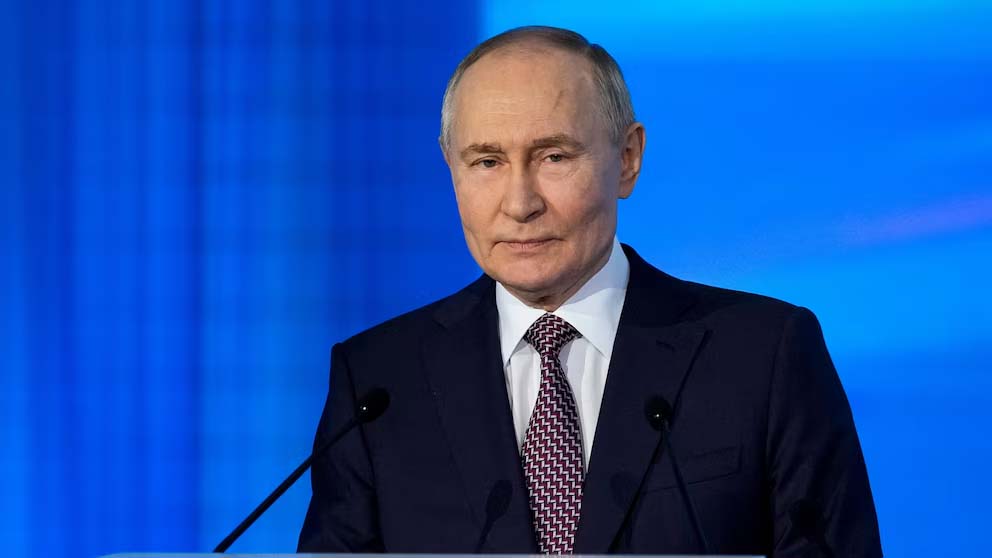UNITED NATIONS, Feb 22: The United States has put forward a draft UN resolution that differs significantly from a European-supported proposal calling for the immediate withdrawal of all Russian troops from Ukraine.
These developments coincide with the upcoming third anniversary of Russia’s invasion of Ukraine, which occurs on Monday when the UN General Assembly is set to vote on the nonbinding resolutions.
This situation highlights a potential conflict between the United States and Europe, especially as the cohesion of the transatlantic alliance is being tested following the Trump administration’s surprising shift towards Russia, initiating talks with Moscow after years of estrangement in a bid to quickly resolve the conflict. European leaders expressed frustration that their representatives and those from Ukraine were not included in preliminary US-Russia discussions last week in Saudi Arabia.
The brief US draft resolution offers condolences for “the tragic loss of life throughout the Russia-Ukraine conflict” and “calls for a swift resolution to the conflict while urging a sustained peace between Ukraine and Russia.”
Russia’s UN Ambassador Vassily Nebenzia commented on the US resolution, referring to it as “a good move.”
Russia also proposed an amendment to include the phrase “including by addressing its root causes,” leading to the final wording of the US resolution to read, “implores a swift end to the conflict, including by addressing its root causes, and further urges a lasting peace between Ukraine and Russia.”
In contrast, the European Union and Ukrainian draft resolution explicitly mentions “the full-scale invasion of Ukraine by the Russian Federation” and highlights the importance of executing all previous assembly resolutions “adopted in response to the aggression against Ukraine.”
This resolution specifies the assembly’s demand for Russia to “immediately, completely and unconditionally withdraw all of its military forces from the territory of Ukraine within its internationally recognized borders” and to cease all hostilities without delay.
The General Assembly has emerged as the key UN body addressing the situation in Ukraine, given that the Security Council is hindered by Russia’s veto power, which inhibits its ability to maintain international peace and security.
While there are no vetoes in the General Assembly, its resolutions are also not legally binding, unlike those from the Security Council. However, these resolutions serve as a significant indicator of global public sentiment.
The competing resolutions come amid President Donald Trump’s unfounded accusations against Ukrainian President Volodymyr Zelenskyy, blaming him for the initiation of the war and labeling him a “dictator” who must “move quickly” to negotiate peace or risk losing his nation. In response, Zelenskyy asserted that Trump was operating within a Russian-generated “disinformation space.” (AP)


Leave a Reply